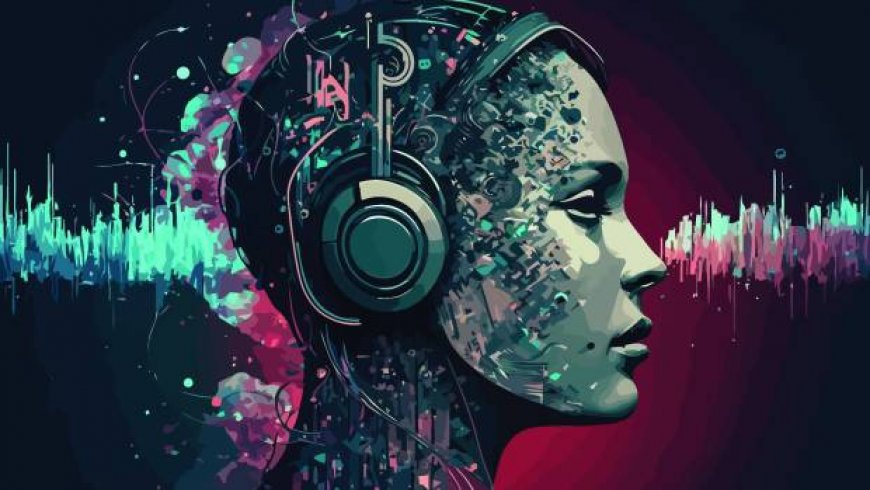Grammys CEO Says AI Must Be a Tool For Artists, It Can't Replace Them
The Grammy Awards recently updated its rules to make sure a robot doesn't walk away with a medal. Now, "Only human creators are eligible to be submitted for consideration for, nominated for, or win a Grammy award."

A recent update to the Grammy Awards' rule book reads: "Only human creators are eligible to be submitted for consideration for, nominated for, or win a GRAMMY Award."
It is a simple, powerful line that I never imagined would be necessary.
DON'T MISS: AI Is Bringing Beloved Musicians, Like John Lennon, Back From The Dead
Though AI-related technology has been around in music for a while -- I have run programs in Adobe Audition that use AI to identify and silence white noise -- things took a turn when ChatGPT launched last year. For the first time, AI made the visible shift from hammer to hand, tool to creator.
Now, if people feel the need to 'create' replications of existing art in a way that is somehow not quite copyright infringement, they have a bunch of options. Google released a text-to-music AI model called MusicLM. Meta, striving to compete, launched its own iteration of the same thing last month, a model simply named MusicGen.
Harvey Mason Jr., the CEO of the Recording Academy, is keen to balance a technology he finds equal parts "exciting" and "terrifying."
"I've spent my entire life trying to get decent at something. And when I see a computer that can write a track in 30 seconds, it's very frightening," Mason told TheStreet. "It's off-putting to see because all of us who are creatives, we spent thousands of hours to get to that point where we feel like we're pretty good at our craft and to know that a computer can learn that and replicate it instantly was shocking."
The new Grammy rules allow for works made using elements of AI to be eligible for consideration, but the human element must far exceed the artificial component.
DON'T MISS: Musicians Find AI Terrifying, But Spotify's CEO (Sort of) Disagrees
Despite his apprehension around the tech, Mason remains optimistic that, when properly used and regulated, it will just be another tool in a musician's pocket, making it easier to make more music.
People used to paint everything, Mason said. And then the camera was invented. The advent of new technology in art creates opportunities for some without destroying those who prefer the old-school methods of creation.
"There was a certain uniqueness and authenticity to people that could still do the other way before the technology came," Mason said. "So, I believe it will still provide a lot of opportunity for music people."
The way his optimism will be proven right is through guardrails and legislation at several different levels that are designed to protect the rights of musicians and artists. The copyright infringement issues brought up by the widespread release of the AI-generated "Heart on My Sleeve" song, Mason said, will need to be addressed.
And addressing these issues, while still allowing for a balance of technologically-driven innovation, is something that will take time, education and a lot of work.
"We are figuring out what this technology means to us. And I don't have all the answers. I don't know everything," Mason said. "I just know that the technology is here. I know for a fact that consumers want more music, not less. And I know for a fact that creative people are going to always figure out a way to be creative."
People, Mason said, are generally resilient and collaborative. And throughout history, musicians and artists have been faced with huge technological changes, and they have always figured out how to continue to make impactful art. The key, regardless of whether something was recorded on an old eight-track with an acoustic guitar or enhanced and fleshed out in a couple of minutes with AI, is that the listener has to "feel something when you hear it." And to that point, the question of AI-enhanced music comes down to one of personal taste.
Despite his cautious optimism for AI in music, Mason was adamant on one point: AI must not be allowed to replace the creatives. It can be a powerful tool for musicians and other artists, but it "can't replace creativity."
"People that are talented are always going to be talented," Mason said. "People that have their finger on the pulse of what consumers want, they're still going to have that pulse, and they're still going to figure how to differentiate their art from the mass-produced art that potentially could come from entirely AI-generated material."
What's Your Reaction?

























































